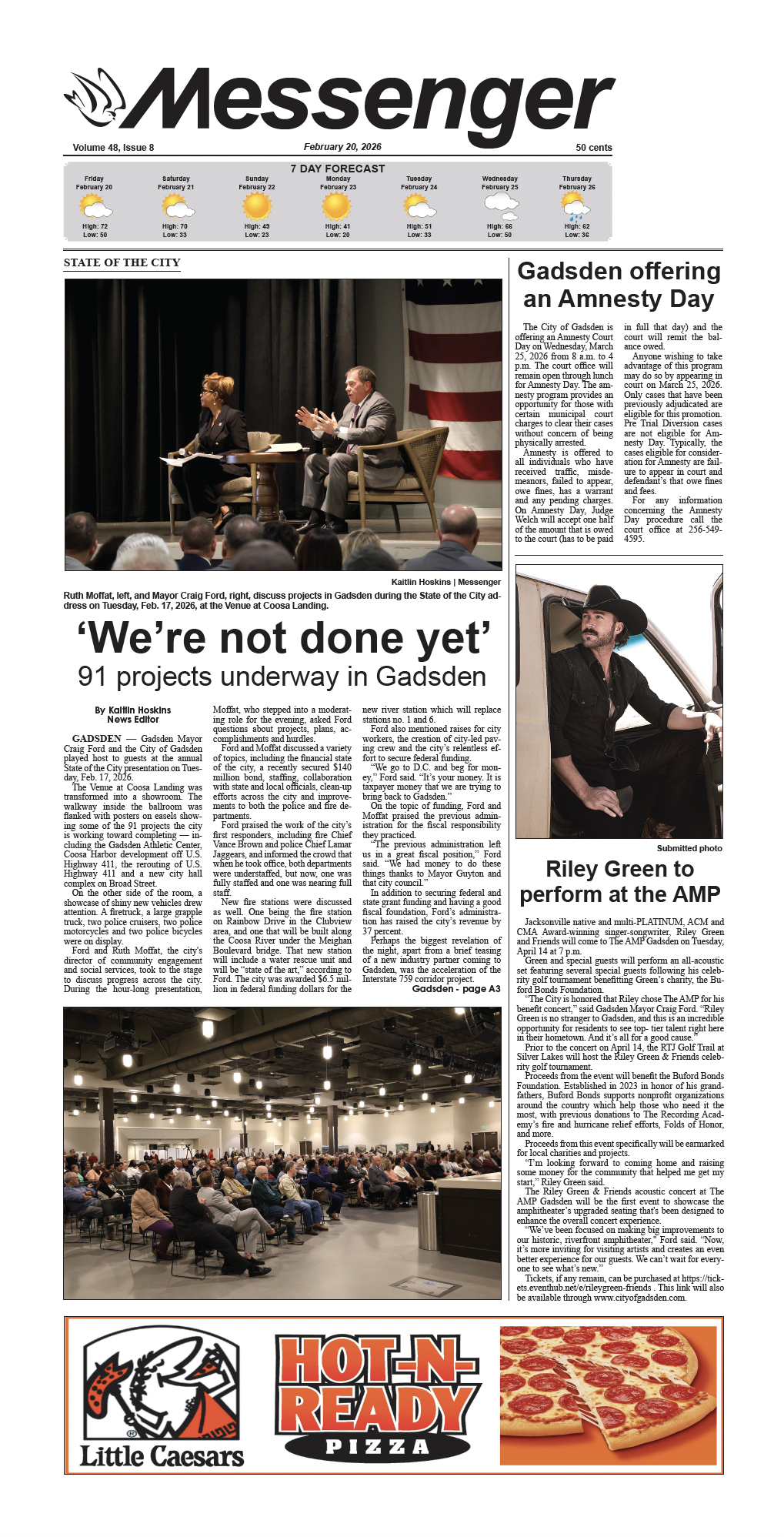By State Rep. Craig Ford
With all the attention being given to the special election for the U.S. Senate, you may not have seen what has been happening in Montgomery with the prison crisis.
Last year, Gov. Robert Bentley proposed a plan to build four new “super prisons” at a cost of about $800 million dollars. At the time, a lawsuit had been filed clai-ming that the state’s prisons were overcrowded and did not provide adequate safety and healthcare services, which is a violation of the 8th Amendment that prohibits “cruel and unusual punishment.”
State leaders claimed that building new prisons would solve all the problems by allowing the state to house the same number of prisoners without having to hire more guards or mental healthcare professionals.
But legislators couldn’t agree on a construction plan, and the court ultimately ruled that our prisons are “horrendously inadequate,” and, more specifically, that there are “serious systemic deficiencies” in the delivery of mental health services, driven by chronic overcrowding and understaffing.
And even the overcrowding may not be as bad as state leaders have claimed.
State leaders have claimed that our prison system is at 160 percent capacity. But that number does not take into account housing additions that have been made after original construction at prison facilities.
For example, the Decatur Work Center and the Decatur Work Release Center combined were designed to house 128 prisoners, but a 340-bed dorm was added in 2008, bringing the total capacity to 505 (the facilities have 525 inmates assigned to them, meaning they are actually operating at a capacity rate of 104 percent).
But in order to make their case for building new prisons, state leaders are excluding the 340-bed dorm from the calculations so that they can say, for example, that the Decatur Work Center is operating at 894 percent of capacity (designed for 37 inmates, but housing 331).
That’s why they are careful to use the phrase “design capacity” instead of just saying “capacity.” Basically, if it wasn’t part of the original design, they aren’t counting it.
That’s not to say that we don’t have overcrowding in our prison system, because we do! It’s just not as bad as state leaders are making it seem.
The real problem is that we don’t have enough mental health professionals and prison guards (there are nearly 12 inmates for every one corrections officer).
Some renovations and new construction may be necessary. But expecting to fix our prison problems by building new prisons makes about as much sense as expecting to fix failing schools simply by building a new school.
New buildings can only ease the overcrowding. They will do nothing to improve mental health or make prisons safer, which is as important for the officers and staff working in these prisons as it is for the prisoners living in them.
And yet, despite the court’s orders to resolve the mental health and staffing problems, state leaders are continuing to push for new prison construction, even as they claim that they don’t have the money to afford the adequate amount of mental health professionals and correctional officers needed to fix the problem.
“We just don’t have the money in the General Fund right now,” Sen. Rusty Glo-ver (R-Semmes) told al.com back in October.
But last month the state hired a project management team to develop a master plan to build and renovate state prisons. That team is also looking at finding private entities to build facilities that the state would then lease.
So, basically, what state leaders are saying is that the state can’t afford to hire the number of correctional officers and mental health professionals needed to satisfy the court and resolve this issue once and for all, but the state can somehow afford to spend a billion dollars or more building and/or leasing new prisons.
What kind of sense does that make?
Properly staffing our prisons would basically only cost about $5 million dollars or so a year more than what the state has already agreed to spend. So, for the same amount of money that the state would spend on building new prisons (which would have to be replaced in 40 or 50 years), we could properly staff our current prisons for the next 160 years.
Our state leaders have lost all credibility when it comes to the prison crisis. Their math simply doesn’t add up, and the only reasonable explanation for this continued push to build new “super prisons” is because somebody who makes big campaign contributions is hoping to get a taxpayer-funded, multi-million dollar government contract out of it.
Craig Ford represents Gadsden and Etowah County in the Alabama House of Representatives. He served as the House Minority Leader from 2010-2016.




